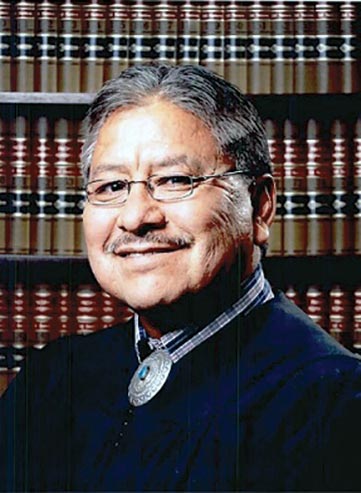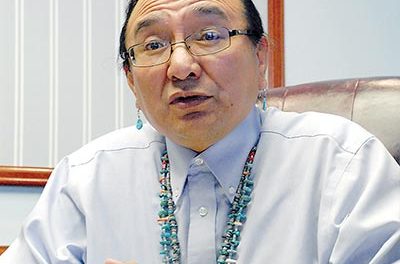
‘Not a job, a calling’
Chief justice retires amid kudos
WINDOW ROCK
Navajo Nation acting Chief Justice Allen Sloan was confirmed as a trial judge at a time when there was great upheaval within the Navajo Nation government.

Allen Sloan
In April 1989, Sloan took his oath inside the Navajo Education Center because the Navajo Nation Council at that time had been locked out of the Council Chamber.
Only two months later, the infamous and deadly clash between former Chairman Peter MacDonald’s supporters and Navajo Nation police would erupt.
“I came in right in the time when we had that governmental crisis,” remembers Sloan. “There was turmoil over who was running the government.”
Twenty-eight years and three months after he was confirmed, Sloan will be retiring, taking with him not just history, as he is currently the longest-serving judge, but also his extensive knowledge of both Western and Navajo traditional ways of ruling from the bench.
For the past two years Sloan has been the acting chief justice, a position that many believe suited him well because of his innate ability to be a team player, and his knowledge of the law.
“I think he would’ve made an excellent permanent chief justice,” said Navajo Nation Public Safety Director Jesse Delmar. “He’s put in a lot of years and I can’t imagine what he’s been through. He made a huge contribution to the Navajo Nation.”
Before becoming a judge, Sloan had a career as a tribal court advocate, and at one point contemplated trying his hand at being chief justice. He applied, but the late Claudeen Bates-Arthur was appointed over him.
Law and Order Committee Chairman Edmund Yazzie commended Sloan for working well with the committee and always keeping them updated.
To read the full article, pick up your copy of the Navajo Times at your nearest newsstand Thursday mornings!
Are you a digital subscriber? Read the most recent three weeks of stories by logging in to your online account.







 Highway 264,
Highway 264, I-40, WB @ Winslow
I-40, WB @ Winslow